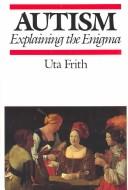Characteristically also, the blessed fools had no sense of social status, and thus were exempt from the usual rules of polite conduct. This enabled the fools to approach powerful personages of church and state with impunity. In fact the fools were famous for confronting bishops and tsars, often with profound effects. In this way, they might have exerted power and influence, and this possibility was in fact exploited by a number of impostors (including the infamous Rasputin). For these reasons, there were rules for determining which were genuine fools. For instance, they had to be fools all the time. ‘Of these there were not many, because it is a very hard and cold profession to go naked in Russia, especially in winter.’ The foolishness of the fools was, it appears, above all a social foolishness, stemming from an inability to relate to people in the ordinary way. It was assumed at the time that foolishness was deliberately adopted and a sign of great religious faith. Of course, we must allow for those heroic individuals existing in all religions, who do adopt voluntarily a life of social isolation and hardship. We must also allow for the possibility of other forms of madness, such as schizophrenia, to have contributed their share to the blessed fools. The particular interest of the blessed fools of Russia is that, for at least some of them, there is evidence of ‘autistic aloneness’. This is not the same as the crude avoidance of people, but rather an inability to relate to people in the ordinary way.
— Autism by Uta Frith (Cognitive development) (Page 39 - 40)

